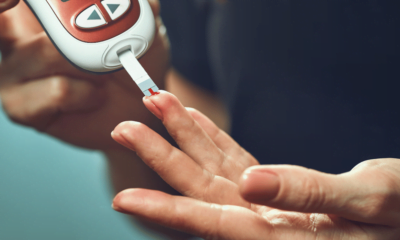Estimated reading time: 5 minutes
We explore some of the neurological and psychiatric disorders which you may be able to access a medical cannabis prescription for.
Medical cannabis was legalised in 2018 and despite a relatively slow start, there are now upwards of 10,000 patients with around 17 private clinics prescribing in the UK and on the islands of Jersey and Guernsey.
While many people associate cannabis with the high profile cases of children with intractable epilepsy, it is actually more often prescribed for chronic pain and psychiatric conditions.
According to data from Drug Science’s observational study, Project Twenty21, out of more than 2,000 patients 50 per cent are prescribed cannabis for pain, closely followed by anxiety (31 per cent).

But the list of conditions, which you may be able to access a prescription for is actually much more extensive.
In part one, we explored some of the physical conditions for which cannabis is currently prescribed. Find out more here
Here, we list those neurological and psychiatric disorders which it might help.
Neurological conditions
Epilepsy
Even though most of the stories we read in the media are about children using cannabis for refractory epilepsy, a relatively small number of UK prescriptions are for this condition. There is currently a lack of paediatric neurologists prescribing medical cannabis for children in the UK, however, adults with epilepsy can also benefit, even if their epilepsy isn’t as severe.
Although there is not a lot of clinical evidence, we do have a lot of real-world data to support its use in this condition. CBD, with small amounts of THC, along with the other minor cannabinoids and terpenes, can be good for seizure control, as well as the comorbidities which come with the condition, including depression and anxiety.
Parkinson’s disease
Parkinson’s disease is a condition in which parts of the brain become progressively damaged over time. Its main symptoms include involuntary shaking, slow movement and stiff muscles, but people may also experience a range of other issues, including anxiety and depression, problems sleeping, and problems with memory and balance.
Cannabis can help patients with several of these symptoms, including pain, anxiety, agitation and sleep.
Parkinson’s UK is also currently funding a trial to see whether CBD on its own could help with the symptoms of delusion and hallucinations.
Psychiatric conditions
Anxiety
Anxiety is the second most common condition for which cannabis is prescribed in the UK. Many patients find that cannabis helps them relax, to be more mindful and less anxious in certain situations, such as those experiencing social anxiety or panic attacks.
While people often assume that THC will aggravate anxiety and make symptoms worse, this comes down to finding the patient’s correct therapeutic dose. If someone consumes too much, this can promote anxiety, so it’s important that patients and prescribers ‘start low and go slow’ to find what works for them.
Insomnia
Insomnia is a common sleep disorder that can make it difficult to fall asleep, hard to stay asleep or cause you to wake up too early and not be able to get back to sleep. Chronic insomnia can be debilitating and can drastically impact a person’s quality of life, causing other related health issues and comorbidities.
Cannabis has been shown to help promote sleep and improve sleep quality and duration.
PTSD
Post-traumatic stress disorder (PTSD) is an anxiety disorder caused by very stressful or distressing events. Symptoms often include nightmares and flashbacks and problems sleeping and concentrating.
Research is ongoing, but PTSD is one condition which cannabis shows real promise in. While CBD can help with the anxiety, patients with PTSD have lower levels of the neurotransmitter anandamide, so the brain has to compensate and it expands the number of CB1 receptors, which THC binds to.
THC also reduces what’s called REM sleep. Within REM sleep, we have intense dreams, so people with PTSD will often have nightmares, intrusive thoughts and flashbacks, but THC could help reduce these.
Obsessive compulsive disorder
Obsessive compulsive disorder (OCD) is a common mental health condition where a person has obsessive thoughts and compulsive behaviours.
As well as helping to regulate the anxiety caused by the condition, some observational studies have shown that cannabis can help reduce compulsions, intrusions and unwanted thoughts.
Tourette’s syndrome
Tourette’s is a condition that causes a person to make involuntary sounds and movements called tics. It affects over 300,000 adults and children in the UK. In many cases, these are not harmful to the person’s overall health, but severe Tourette’s can still have a huge impact on quality of life.
Some Tourette’s patients have found that cannabis can be transformative, in helping to reduce the tics and shakes caused by the condition, as well as the anxiety, depression and other potential comorbidities.
Neurodivergent conditions
Autism Spectrum Disorder (ASD)
ASD is a complex neurodevelopmental condition that affects people in different ways, these may include impaired social interaction, difficulties in communicating, repetitive behaviours, getting anxious or upset about unfamiliar situations and social events, or finding bright lights or loud noises overwhelming.
Early research suggests that both CBD and THC could be effective in treating some of the symptoms, particularly on compulsive and anxious behaviours.
Some studies are ongoing to identify cannabis-responsive biomarkers in children, but it is not yet prescribed for under 18s in the UK.
ADHD
Attention Deficit Hyperactivity Disorder (ADHD) is a neurological disorder, which can affect people’s behaviour in that they can seem restless, have difficulty concentrating and or seem impulsive. It is one of the most commonly diagnosed neurodiverse conditions in the UK.
Many patients have found that cannabis helps to mitigate some of the symptoms, including hyperactivity and impulsivity. It has also been said to improve the side effects of their prescription medication, such as irritability and anxiety, and in some cases allow them to reduce it all together.
Find out more about the physical health conditions which you may be able to get a prescription for here
Always speak to your doctor before making any changes to your medical care. This is not an exhaustive list, and each clinic should have more details about the conditions they treat on the website.
You can find a full list of prescribing UK cannabis clinics in the latest issue of Cannabis Health, sign up here

 Science5 months ago
Science5 months ago
 News6 months ago
News6 months ago
 Health5 months ago
Health5 months ago
 News6 months ago
News6 months ago
 Health4 months ago
Health4 months ago
 Science6 months ago
Science6 months ago
 Cannabis explained6 months ago
Cannabis explained6 months ago
 Science6 months ago
Science6 months ago













